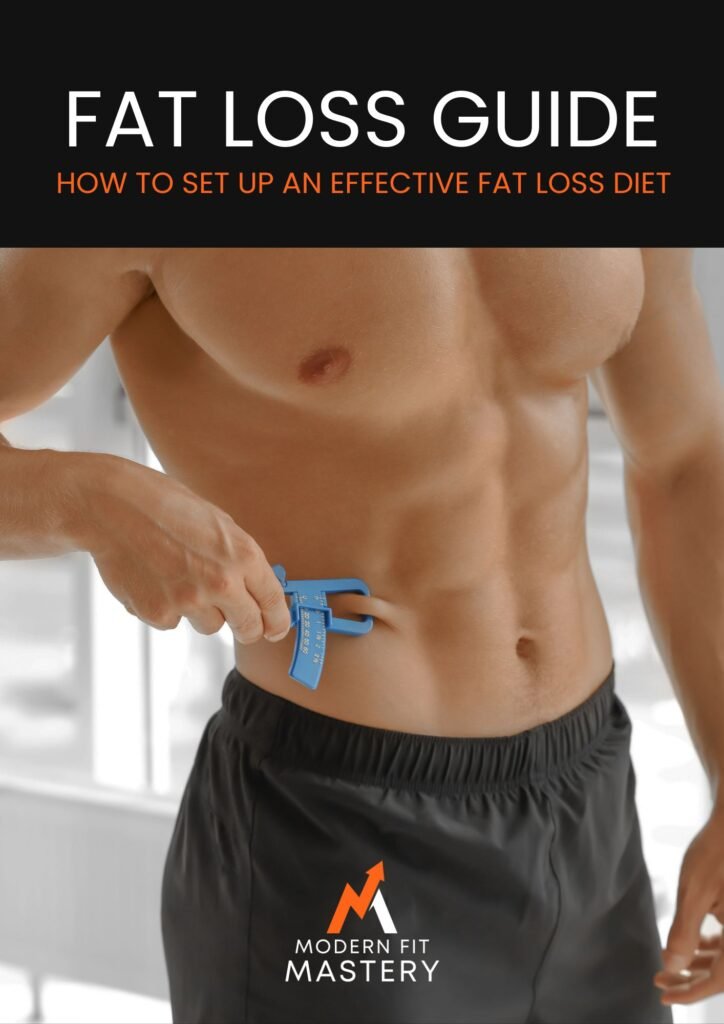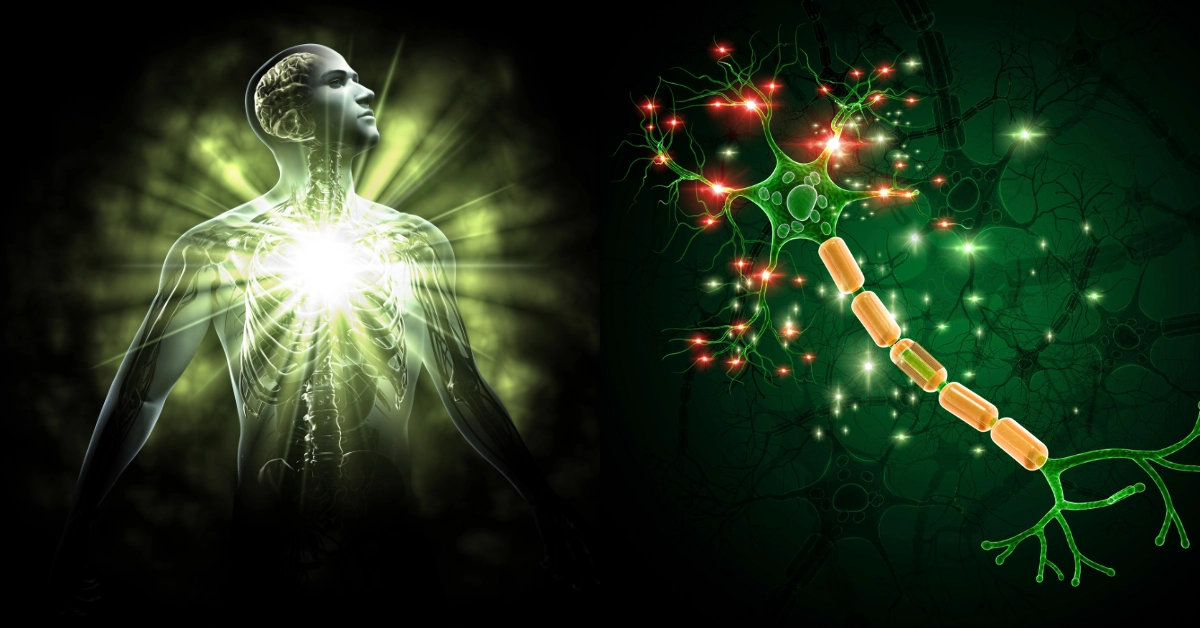Pro Metabolic Eating And The Bioenergetic Model Of Health
What Is The Bioenergetic Model Of Health?
The bioenergetic model or view of health is based upon the fundamental concept and understanding that the energy we produce in every single cell of the body is the driving force behind good health, and maintaining or increasing this, especially as we age is important for our health and longevity. This energy, known as ATP, is produced in the mitochondria of the cell, and when this process is working well we can function at our best, regenerate tissues in our body, heal, and recover from the stressors we are subjected to daily.
The bioenergetic model of health views energy production as the fundamental driver of our health and therefore emphasizes certain nutrition and lifestyle principles to support the ability of our cells to make energy. It also takes into account environmental factors and how these factors will either increase our ability to produce energy at the cellular level or impair it, and therefore affect our overall health.
The bioenergetic model of health seeks to place the body in a safe and plentiful environment, where it senses adequate energy and is not under high amounts of stress. When the body senses a state of abundance it can maintain a high metabolic state and function at its best. When it senses a lack of resources in the environment such as inadequate nutrition from a low-calorie intake and nutritional deficiencies it will lower its metabolic rate as a protective mechanism.
“Energy and structure are interdependent at every level”
Raymond Peat
The High Energy State
In a high-energy state, our protective hormones such as progesterone, pregnenolone, and DHEA are balanced and stress hormones such as cortisol, adrenaline, and glucagon are low. In this high-energy state, we have abundant energy we can sustain throughout the day, our cognitive abilities are good, we can handle stressful situations well, we are happy, have a positive outlook on life, and we are driven and motivated to achieve our goals. We can also lose body fat and build muscle easily.
The Low Energy State
If the process of energy production is impaired and we can not produce enough energy this leads to degeneration and the inability of our bodies to deal with the environment and function at its best. When the body can not produce adequate cellular energy we see symptoms of the low energy state.
Symptoms Of The Low Energy State
Stress hormones such as cortisol, adrenaline, and glucagon are elevated under stress and break down the body to produce energy when there is a lack of energy from food or when the ability of our cells to make adequate energy is impaired. The bioenergetic model of health believes that over time this will lead to more serious health conditions such as chronic disease.
Pro Metabolic Eating

When looking through the lens of the bioenergetic model or view of health, certain principles and foods are recommended to maximize our ability to produce energy at the cellular level. Pro metabolic nutrition looks at different foods as either net positive or net negative to a healthy metabolism. Pro metabolic eating involves consuming food that promotes improved thyroid hormone conversion, and foods that contain highly bio-available nutrients are emphasized. Foods that are harder to digest, contain high amounts of anti-nutrients, and actively block or hinder cellular respiration and thyroid conversion are limited or avoided altogether.
Pro metabolic eating in the bioenergetic model of health looks at each person as an individual, with the goal of improving their metabolism and hormonal health. Certain foods will work for some people and not for others, however, as a person’s metabolic health improves, foods they could not tolerate may be able to be introduced. Here are some of the principles of pro metabolic eating as recommended in the the bioenergetic model of health.
Eat Foods That Are Easy To Digest And Have High Amounts Of Bio Available Nutrients
Pro metabolic foods in the bioenergetic model of health are those that contain high amounts of bio-available nutrients that the body can easily digest and extract nutrients from. These foods often contain high amounts of fat-soluble vitamins A, D, E, and K, which are considered extremely important for hormonal health and maintaining a healthy metabolism. These include good quality animal products such as meat, fish, organ meats, shellfish, eggs, and dairy if tolerated well. Plant-based foods that are easy to digest such as ripe fruit, fruit juices, potatoes, and other root vegetables are recommended.
Avoid Foods That Are Harder To Digest And Are Irritating To The Gut
One of the foundational principles within the bioenergetic model of health is improving and maintaining gut health. Eating foods that take longer to digest can feed bacteria in the gut which then release endotoxin (lipopolysaccharides). This can damage the gut and even cause auto-immune reactions.
Whole grains are seen as a net negative due to the higher amounts of anti-nutrients they contain, such as phytates, lectins, and trypsin inhibitors. Gluten is also problematic and difficult to digest for many people.
Serotonin And The Gut
When we eat foods that are hard to digest we can feed bacteria in the gut which produce endotoxin. When the gut is irritated by stress from endotoxin, fibrous foods, chemicals, drugs, and alcohol, serotonin production is increased. Endotoxin also disrupts energy production.
In the bioenergetic model of health, serotonin is not seen as the ‘happy’ hormone, and elevated levels are seen as extremely detrimental. Serotonin could be driving schizophrenia, psychosis, PTSD, depression, anxiety, and other mental health issues according to the bioenergetic model of health.
This runs counter to the mainstream view, however, a recent review has also called into question previously held views on serotonin and its role in depression. In the bioenergetic model of health, there is not a deficit of serotonin in depression, there is an excess.
Do Not Restrict Carbohydrates
Carbohydrates are considered extremely important and beneficial due to their pro-thyroid and anti-stress effects on the body. Glucose is the fuel that your liver uses to convert thyroid hormones T4 to T3 and therefore consuming adequate carbohydrates is considered extremely important. The more thyroid hormones converted, the healthier your metabolism. Simple sugars such as those from fruit, fruit juices, and honey are recommended due to their digestibility, high nutrient density, and beneficial effects of fructose and glucose working together to balance blood sugar.
Starches can also be included if tolerated well, however, easier-to-digest sources are recommended, such as well-cooked potatoes (skin removed) and other root vegetables, as well as more processed grains such as white rice. It is recommended to include some saturated fat when you consume starch to help balance blood sugar. Having some fruit with starch will also have the same effect.
Eat Regularly To Balance Blood Sugar And Avoid Fasting
Pro metabolic eating involves eating regularly throughout the day to balance blood sugar levels and keep stress hormones low. Balancing your meals with protein, carbohydrates, and fat is recommended. This can look different depending on the health of the individual. Healthier individuals can go longer between meals without having a stress response (the body releases cortisol and adrenaline to make glucose and maintain blood sugar). Individuals in a poor metabolic state, with poorer liver health, and who are overly stressed will benefit from eating more often throughout the day to balance their blood sugar. For most people eating 3-5 meals with 3-5 hours between meals works well.
Fasting is not recommended in the bioenergetic model of health because of the increased stress hormones that are released to keep blood sugar stable when we do not consume regular meals. The healthier you are the better your body will be able to handle fasting, however, it is still seen as detrimental to metabolic health over the long term.
The Stress Hormones Simplified
The stress hormones are elevated to provide energy to the body when there is insufficient energy coming in from food in the form of glucose, from carbohydrates. The body does this because it must maintain blood sugar levels at a certain range, and will even break down its tissues to maintain this.
When our blood sugar drops too low, it can’t supply adequate energy to our brains. This results in a stress response.
- Glucagon, epinephrine (adrenaline), and growth hormone are released first. These break down liver glycogen, the body’s stored sugar in the liver (1).
- Cortisol is released next if the body can not raise the blood sugar enough by breaking down liver glycogen, due to insufficient glycogen stored in the liver or energy being used too quickly (1).
- Cortisol breaks down muscles, organs, and other tissues as a last resort to raise blood sugar, through a process called gluconeogenesis.
Stress occurs when we do not have enough energy. The stress hormones are then used to increase energy production.
All Three Macronutrients Are Important For Health
The bioenergetic model of health views all three macronutrients as important and does not remove or restrict whole food groups as can be seen in other nutritional philosophies. A higher carbohydrate approach is recommended for healthy individuals, although individuals in poorer metabolic states may benefit from a lower carb approach initially. Over time the goal is to reintroduce carbohydrates as their metabolism improves and they can use glucose better.
Adequate daily protein is also seen as important, however, consuming excess protein is seen as detrimental especially as it can often come at the expense of carbohydrates in the diet. This is often seen in the fitness industry. Fat is kept low to moderate for most individuals, with an emphasis on saturated and mono-unsaturated fats to support hormonal health.
Consume Carbohydrates With Protein
It is recommended to consume carbohydrates with protein to help balance blood sugar. Eating protein on its own can cause a stress response and lead to blood sugar issues. A general guideline is to consume double the amount of carbohydrates in grams compared to protein in each meal.
Emphasize Saturated And Mono Unsaturated Fats
Saturated fats are seen as the healthiest fats to consume within the bioenergetic model of health. This is because they are stable when exposed to heat and light and do not break down in the body and cause inflammation. Animal fats from healthy sources are recommended as well as coconut oil for its metabolism-boosting effects. Mono-unsaturated fats such as those from olive oil and avocados can be included in moderation.
Limit Polyunsaturated Fats and Avoid Seed Oils
Polyunsaturated fats such as those in nuts, seeds, and grains, are considered detrimental to metabolic health, especially when consumed in excess. Nuts and seeds contain high amounts of polyunsaturated fats, which directly suppress thyroid function, slow metabolism, increase cortisol, decrease digestive enzymes, and impair cellular metabolism. They also contain anti-nutrients and are not a high-quality source of protein. These can still be consumed in small amounts, however, they are not seen as a necessity.
Industrial seed oils such as sunflower and canola oil are seen as extremely problematic due to their high amounts of polyunsaturated fats. They are also extremely unstable when exposed to light and heat, such as in the human body, and when heated. These fats directly inhibit cellular respiration and interfere with the cells’ ability to use glucose according to the bio-energetic model of health. These should be severely limited or avoided completely.
Meat from ruminant animals such as cows, sheep, bison, and venison are great protein and fat sources. This is because ruminants have a significant capacity to convert polyunsaturated fats in their diet into saturated fats. This means even animals fed on high polyunsaturated fat diets as is common in commercially produced meat will still have a relatively low amount of polyunsaturated fat. Fat in these animals will mostly consist of mono-unsaturated and saturated fats.
Non-ruminant animals such as chicken and pigs will contain a high amount of polyunsaturated fat if fed on a high polyunsaturated fat diet. If you are going to eat chicken or pork it is best to limit your consumption and choose lower-fat options, unless you can source animals that are not fed on high polyunsaturated fat diets.
Balance Your Protein Sources
It is recommended to balance your protein sources to avoid the overconsumption of the inflammatory amino acids tryptophan and cysteine which are found in higher amounts in muscle meats. Consuming some bone broth, gelatin, or collagen powder with your muscle meats will balance out these amino acids as they contain higher amounts of the pro-metabolic amino acids glycine and proline. Other Protein sources that contain less inflammatory amino acids include organ meats, shellfish, and dairy products.
Dairy Is Recommended If Tolerated Well
Dairy is highly recommended within the bioenergetic model of health due to its high calcium-to-phosphorus ratio. Pro metabolic foods such as meats have a high ratio of phosphorus to calcium so consuming adequate calcium in the diet is seen as extremely important to balance the calcium to phosphorus ratio. Calcium also supports energy metabolism, inhibits fat-forming enzymes, and lowers parathyroid hormone (PTH) which is considered beneficial in the bio-energetic model of health.
Minimise Or Avoid Lugumes And Soy Products
Lugumes are hard to digest and are goitrogenic (suppresses thyroid functioning). Soy is a phytoestrogen (plant estrogen) and is also goitrogenic, and most soy is genetically modified and highly processed. If you are going to consume soy use fermented soy products such as Tempeh Natto.
Minimise Or Avoid Raw Vegetables
Raw vegetables and leafy greens are high in cellulose and insoluble fiber which cannot be properly digested by our stomachs and can create digestive issues. Vegetables should be well-cooked and can be used in moderation if they do not cause digestive issues, although they are not necessary.
Do Not Restrict Calories
Overly restricting calories through excessive dieting is stressful on the body, especially in the long term, and will also lead to nutritional deficiencies and a lower metabolic rate. When the body senses a lack of energy vital processes in the body are prioritized, and resources are pulled away from less important processes, leading to symptoms of the low-energy state.

The Pro Metabolic Lifestyle

The bioenergetic model of health does not simply focus on nutrition or following a pro metabolic eating plan. It takes a more holistic view of health. Living a pro metabolic lifestyle is seen as extremely important, as the environment an individual finds themselves in is believed to have either a pro-metabolic or a detrimental effect on metabolism and therefore the health of an individual.
Sunlight
Adequate sunlight exposure is heavily emphasized due to its positive effects on cellular respiration and metabolism as a whole as well as important neurotransmitters such as dopamine. It also plays a vital role in setting our circadian rhythm, which is important for sleep. The bio energetic model of health also addresses the detrimental effects of darkness and overexposure to blue light from modern lighting and technology.
Red Light
Using beneficial wavelengths in red light is recommended to counter the unnatural lighting we are exposed to from blue light from modern lighting and technology such as TV screens and smartphones, especially in the evening to improve sleep quality. Red light therapy is also seen as a useful tool to improve metabolism. Red light Therapy (RLT) is thought to work by producing a biochemical effect in cells that strengthen the mitochondria where energy is produced.
A Stimulating Environment
Creating a lifestyle that is rich in creativity and exploration, and following your desired life path are important in the bio energetic model of health. Performing repetitive tasks day after day that are not stimulating is seen as detrimental to metabolic health. Think the modern 9-5 work life!
Learned Helplessness
Learned helplessness is a biological condition that is created when an individual is in a situation or environment where they believe they are unable to escape stress. As the name implies, this can be learned and can be a real or perceived absence of control over the outcome of a situation. In learned helplessness, the level of serotonin is high, and an excess of serotonin helps to create the state of learned helplessness, which can then affect our metabolic health. Learned helplessness and serotonin are strongly correlated.
We can see why learned helplessness can be a problem for many people in the modern world. Being stuck in jobs and financial situations that people feel they are unable to escape is a major cause of learned helplessness. Unlearning negative thought patterns and limiting beliefs which are often learned from society and making a plan to escape a negative situation, as well as focusing on a positive future, can be a way out of learned helplessness.
Exercise
Exercise is seen as a net positive within the bio energetic model of health when performed in the right amounts and the individual is in the high energy state, consuming adequate carbohydrates, and is not overly restricting calories. Strength training is recommended to build muscle and increase the metabolic rate. Excessive amounts of cardiovascular exercise, such as endurance work is seen as overly stressful on the body and detrimental to the metabolism and thyroid health.
Ancestral Diets Versus Pro Metabolic Eating

Ancestral nutritional philosophies such as the paleo diet and more recently the carnivore diet believe that eating foods humans would have been eating throughout their evolutionary journey is the healthiest way to eat, and that we should try to mimic this as much as possible in the modern day. This way of thinking has some merits, and these diets have brought to the public awareness valuable information such as red meat and saturated fat being healthy, the problematic nature of many plant foods, especially when consumed in excess, and the dangers of seed oils, which have been promoted as ‘heart healthy’! Of course, there is context here and the metabolic health of the individual should always be taken into account.
A pro metabolic diet shares many of the principles promoted by these diets, such as eating nutrient-dense, pro metabolic whole foods with high amounts of bio-available nutrients, and avoiding modern-day processed foods which are full of chemicals and vegetable oils. Proponents of the bioenergetic model of health state that in reality we do not know exactly what the makeup of our evolutionary diet would have been.
Yes, we would have been eating animals, but how much meat we would have been consuming and how often is not known. How many carbohydrates in the form of fruit we would have had access to is also not known and this is one of the criticisms of the carnivore diet. Proponents of the carnivore diet base their whole diet around meat and do not consume carbohydrates, forcing their bodies to be in ketosis long term.
The bioenergetic model of health views ketosis as a major stress on the body. Ketosis is a vital mechanism that allows us to survive when food is scarce, however, remaining in ketosis long-term is seen as detrimental to health. The bioenergetic model of health also makes the point that we are no longer living in the natural environment of our ancestors. Even if the diets we consumed were similar to those proposed by these diets it does not mean they were optimum for health, and it does not mean we should be eating the same way now. Our ancestors would have had to eat the food that was available to them, depending on their location.
The bioenergetic model of health states that we are subjected to far greater amounts of stress than at any time in our evolutionary history. In this modern world, we are subjected to high amounts of stress daily. This can be emotional stress from the busy modern lifestyle, poor quality nutrient-depleted food grown in mineral-poor soil, and a toxic environment that includes thousands of chemicals our bodies have not been exposed to in their evolutionary history. Many of these are endocrine disruptors. We work indoors under unnatural lights and do not get adequate sunlight. We are also exposed to EMF radiation thousands of times higher than at any time in human history.
With this understanding proponents of the bioenergetic model of health state that we may need a different approach to nutrition to counter the stress we are all subjected to daily. This is the philosophy behind the bioenergetic model of health and a pro metabolic approach to eating. The emphasis is on providing the body with adequate energy and removing things that block our ability to produce energy. In a high-energy state, we are better equipped to be able to deal with the stress of the modern world.
The Bioenergetic Model Of Health And Fat Loss
The bioenergetic model of health views weight gain and the inability to lose body fat as a symptom of an unhealthy metabolism, and a low energy state. Some proponents of the bioenergetic model of health believe obesity is caused by a lack of energy, not an excess of energy in the form of calories. They state that the food an obese individual is consuming is unable to be fully converted into energy at the cellular level and is instead stored as body fat. This can result in a lack of energy and will result in the individual wanting to eat more food, which will result in more fat gain.
The bioenergetic model of health seeks to address weight gain and fat loss by restoring a healthy metabolism and addressing the low-energy state. When the body is healthy, the protective hormones such as progesterone, pregnenolone, and DHEA are balanced and the stress hormones are low, a healthy body weight will be achieved. The bioenergetic model of health does not believe using a calorie deficit to try to lose body fat is a good idea, as it places more stress on the body and will further damage the metabolism.
Pro Metabolic Eating To Lose Weight
I believe improving metabolic health will likely lead to weight loss over time, and it may be a good option for some individuals, especially those with a history of overly restrictive diets. If the priority is health and improving metabolic rate, slowly increasing calories as well as introducing a pro metabolic eating approach is probably a good idea.
For individuals in better health, whose priority is fat loss I would still recommend a small calorie deficit. Although restricting calories is a stress on the body and is not ideal for a healthy metabolism, the net benefit of losing excess weight is likely beneficial in my opinion, when done correctly. We can still implement many of the principles of the bioenergetic model of health and pro metabolic eating.
If you wanted to minimize the negative effects of a calorie deficit following a macro-based approach, here is how I would set up a fat loss phase:
- Consume nutrient-dense pro metabolic foods, and avoid foods that are detrimental to a healthy metabolism.
- Maintain a small calorie deficit aiming to lose half to one percent of your body weight per week on average.
- Keep carbohydrates as high as possible.
- Keep protein at the lower end of the recommended range. (0.82g per lb of body weight or goal body weight if you are overweight) if performing regular strength training.
- Keep fat low, around 20% of calories to leave more room for carbohydrates.
- Include some days when you eat at around maintenance calories throughout the week by increasing carbohydrates. An example of this would be using the 5:2 calorie cycling protocol.
- Include regular diet breaks.
- Strength train 2-3 times per week and use the minimum effective volume that you can make progress with and maintain muscle.
- Limit or avoid cardio, and use less stressful daily activities such as walking to increase energy expenditure.
- Focus on sleep quality aiming for 8-9 hours per night, and try to mitigate stress as much as possible.
- Get as much sunlight as you can and use red light at night.
If you need help setting up a fat-loss diet, you can download our free fat-loss guide:

My Thoughts On The Bioenergetic Model Of Health
I first came across the bioenergetic model of health and the concept of pro metabolic eating after experiencing some low-energy symptoms and coming across the work of Dr. Ray Peat. A background of intermittent fasting and under-eating based on the amount of activity I was performing was the likely culprit.
After Implementing some of the basic principles of pro metabolic eating as well as lifestyle factors promoted by the bioenergetic model of health I was feeling a lot better. I have delved into the philosophy of the bioenergetic model of health to a greater or lesser degree at various times over the last decade, however, I have always kept certain principles I learned from the bioenergetic model of health in place.
Principles Of The Bioenergetic Model of Health I Always Follow
- I always consume a good amount of carbohydrates, even in a fat-loss phase. These consist of mainly simple sugars from fruit, fruit juices, and honey. I do eat some starch from potatoes and white rice. Eating 200g of carbohydrates per day is now low for me!
- I do not purposely seek out polyunsaturated fats, and avoid vegetable oils.
- I do not overconsume hard-to-digest foods, and I limit grains, although I do not avoid them altogether.
- I do not overeat protein and I try to balance protein from muscle meats with protein from dairy and collagen.
- I try to eat organ meats such as liver at least once per week (still trying to be consistent with this one).
- I do not over-exercise.
- I use red light at night to improve sleep quality.
- I consume a decent amount of dairy because I tolerate it well.
- I cook my starches well to improve digestibility. If I eat vegetables I also cook them well.
What Are The Potential Benefits Of Pro Metabolic Eating?
Here are some of the potential benefits of pro metabolic eating and applying principles of the bioenergetic model of health:
- Maintaining a healthy metabolism and keeping stress low will likely make fat loss and maintaining a healthy weight easier.
- It will likely make building and maintaining muscle easier.
- It can help individuals shift out of patterns of excessive dieting, and restricting or removing whole food groups.
- It can help people move away from dogmatic thinking such as there is one perfect diet and all other diets are wrong!
- It can improve digestive health, and help with symptoms such as bloating.
- It can help people mitigate stress, and improve sleep quality.
- It may be beneficial to mental health and help with anxiety and depression.
- It can prevent people from performing excessive amounts of exercise and overstressing the body.
Conclusion
The bioenergetic model of health offers an alternative perspective on health. It seeks to maximize our ability to produce energy, and in doing so reduce stress, by implementing pro metabolic eating and lifestyle principles. In terms of nutrition, it is not dogmatic as can be seen in other nutritional philosophies such as veganism or the carnivore diet. It is anti-authoritarian, focuses on principles, and encourages self-experimentation to see what works best for the individual.
The bioenergetic model of health can be used as a framework to address any low-energy symptoms you may be experiencing. The information in this article comes from the perspective of the bioenergetic model of health. We advise that you do your own research and come to your own informed decisions. As with anything we believe you should not allow anyone else to tell you what is right for you. If you are going to make any changes to your diet we always recommend you talk to your doctor or a health care professional first.
“Percieve, Think, Act“
Raymond Peat
Recommended Resources
If you would like to learn more about the bioenergetic model of health and pro metabolic eating we recommend checking out Jay Feldman Wellness and Mike Fave.com.


